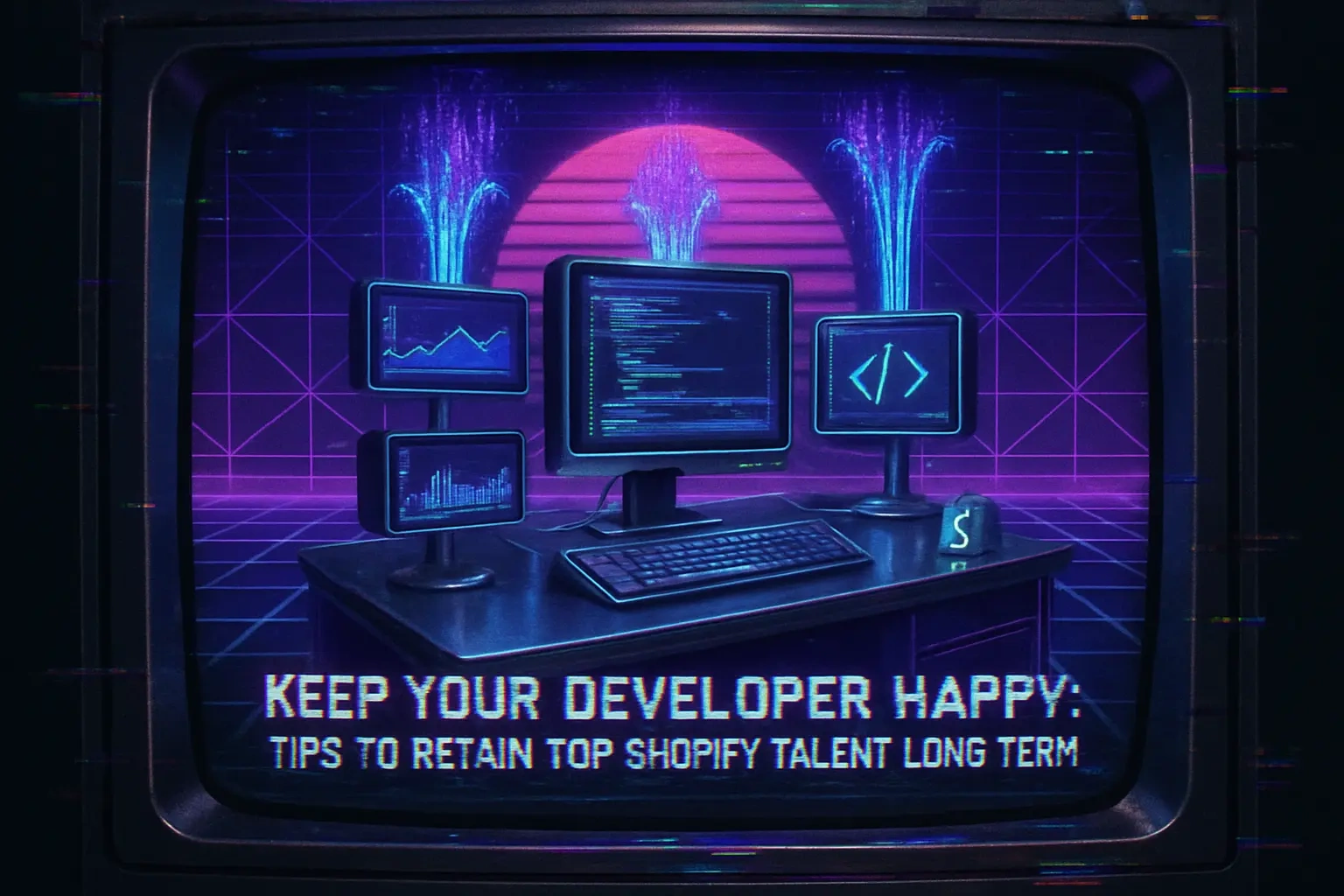Keep Your Developer Happy: Tips to Retain Top Shopify Talent Long-Term

Keep Your Developer Happy: Tips to Retain Top Shopify Talent Long-Term
Why Developer Retention is Crucial for Your Business
The High Cost of Hiring and Onboarding
The Value of Institutional Knowledge
Fostering a Positive and Respectful Work Environment
The Importance of Trust and Autonomy
Recognizing and Appreciating Their Work
Providing Opportunities for Growth and Development
Encouraging Work on Challenging and Interesting Projects
Investing in Training and Skill Development
Competitive Compensation and Fair Contracts
Researching Market Rates for Shopify Developers
Offering Timely Payments and Clear Contract Terms
Building a Long-Term Partnership
Involving Them in Strategic Planning
Creating a Roadmap for Future Projects
References
Keep Your Developer Happy: Tips to Retain Top Shopify Talent Long-Term
Why Developer Retention is Crucial for Your Business
The High Cost of Hiring and Onboarding
The Value of Institutional Knowledge
Fostering a Positive and Respectful Work Environment
The Importance of Trust and Autonomy
Recognizing and Appreciating Their Work
Providing Opportunities for Growth and Development
Encouraging Work on Challenging and Interesting Projects
Investing in Training and Skill Development
Competitive Compensation and Fair Contracts
Researching Market Rates for Shopify Developers
Offering Timely Payments and Clear Contract Terms
Building a Long-Term Partnership
Involving Them in Strategic Planning
Creating a Roadmap for Future Projects
References
Posted Jul 4, 2025
Losing a great developer is costly. Learn our top tips for retaining top Shopify talent, from fostering a positive work environment to providing growth opportunities and fair compensation.









